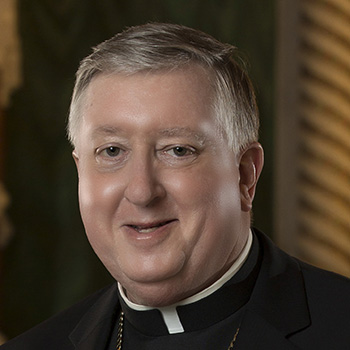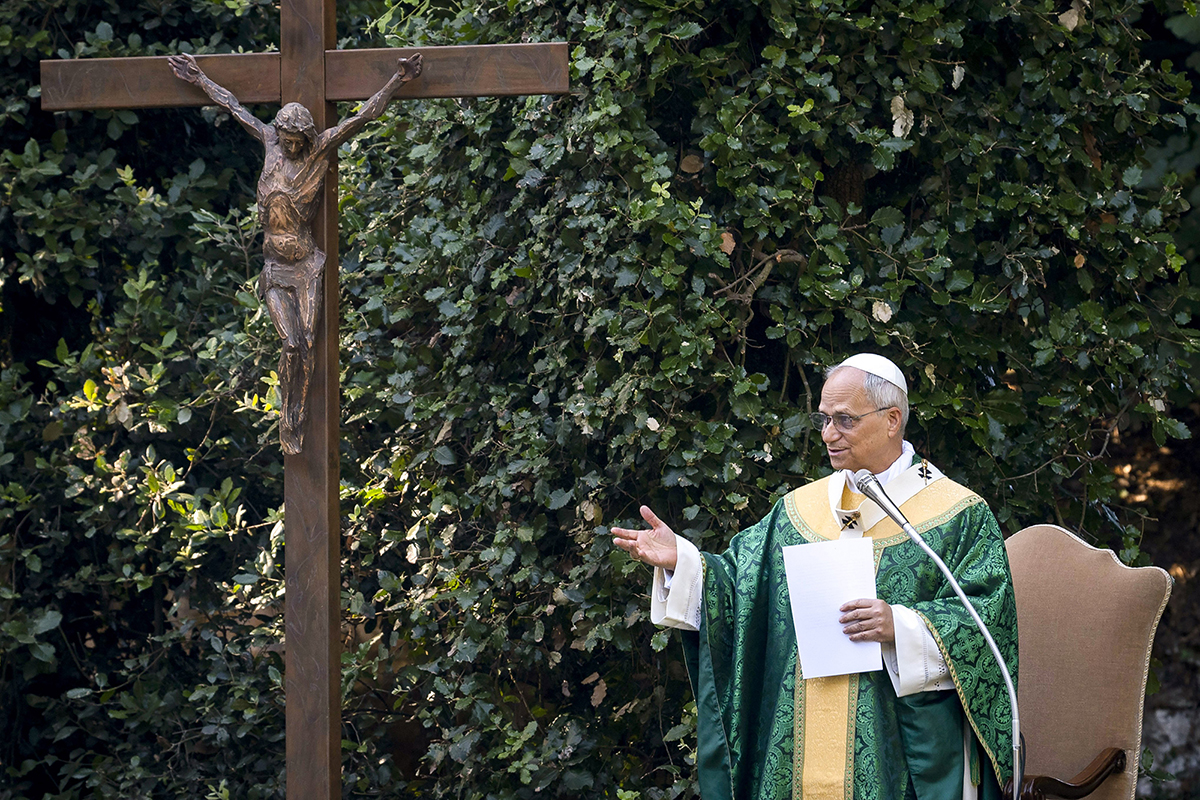SERVE THE LORD WITH GLADNESS | To say ‘yes’ to Jesus, we have to say ‘no’ to some things
We need to grow in our ability to diagnose and treat problems for and with each other

Dear brothers and sisters in Christ,
No.
That’s a word we need to learn to say. We need to say it skillfully and with gentleness. But we need to say it with clarity and strength, as well.
The Catechism of the Catholic Church says: “The beatitude we are promised confronts us with decisive moral choices” (CCC 1723). In other words: Heaven is offered to us! But accepting the offer requires us to say no to some things.
Contemporary culture suggests we can say “yes” to everything. But that’s not going very well for us! And young people suffer more than anyone from our culture’s inability to draw boundaries between right and wrong. We need to recover the ability to say “no” and to help each other live into that “no.”
I’m thinking of this because we’re reading from St. Paul’s First Letter to Timothy this week. It’s one of the “pastoral letters” that St. Paul wrote to Timothy and Titus after they became bishops in Ephesus and Crete. Were there many good things in those communities, and did St. Paul encourage them to say “yes” to those good things? Most definitely! But there were also problems in their communities, teachings and trends that were contrary to the Gospel. St. Paul named those problems. He instructed Timothy and Titus in saying “no” to them and in helping their communities live into that “no.”
Think of what would happen if our physicians always told us: “There’s nothing wrong with your health.” They wouldn’t be very good physicians! There are physical illnesses in the world. A good physician diagnoses them and charts a course of treatment. There are moral and spiritual illnesses in the world as well; they need diagnosis and treatment, too. It’s moral and spiritual malpractice to always say, “there’s nothing wrong with your soul.”
We celebrate the feast of St. Padre Pio on Sept. 23. He was a great spiritual physician! He wasn’t afraid to name moral and spiritual sicknesses for what they were, and to bring healing in the sacrament of penance.
We also celebrate the feast of St. Matthew the Apostle this week, on Sept. 21. So often we think of the call of St. Matthew and how Jesus said to him: “Follow me.” That was the great “yes” of Matthew’s life. But part of following that call was also a “no.” Jesus said to Matthew: “Leave those other things behind.” Matthew was offered an intimate relationship with Jesus and confronted with a decisive moral choice: He said no to some things in order to say yes to Jesus.
That’s a pattern in the Gospels and in our own lives. Jesus offers an intimate relationship to everyone. But in order to say “yes” to Him, we have to say “no” to some things. That’s why the call has always been: “Repent, and believe in the Gospel.” There’s a “no” there, not just a “yes.”
A good physician or coach names problems. Sts. Paul and Padre Pio named problems. Jesus named problems. We need to grow in our ability to do that for and with each other. Where do you need help saying “no” in your life, in order to say a deeper “yes” to Jesus? Where might a friend need that same kind of help? Let’s help each other live into those places where we need to say “no.”





